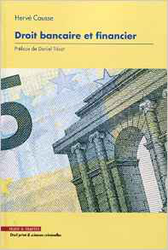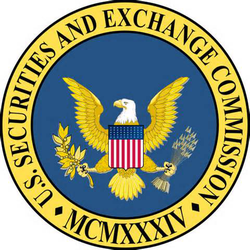The recent news

June 21, 2016
Breaking news


June 20, 2016
Breaking news

Little is known about how to ‘regulate the Internet’…
Outline solutions, however, do seem to have to be found in ex-post mechanisms since Regulation (broadly speaking) understand ex-ante and ex-post mechanisms as a continuum, and since Regulators increasingly concentrate ex-post mechanisms in their hands as an effective way to ensure execution of the ex-ante prescriptions they themselves elaborated.
Ex-ante mechanisms aim at making algorithms more ‘loyal’.
As long as we hope for devices to be trustworthy and to be held accountable for their ‘loyalty’, we give merits to the idea that we probably should “take liability seriously”.
On June 14, 2016, the Californian father of one of the victims of the 11/13/2015 Paris attacks filed a suit in a U.S. District Court to prosecute Google, Facebook and Twitter.
The legal dispute is clear.
The applicant based its claim to hold the companies liable on the grounds that they let terrorist groups use their networks: “The suit claims the companies “knowingly permitted” the Islamic State group, referred to in the complaint as “ISIS”, to recruit members, raise money and spread “extremist propaganda” via their social-media services”.
Conversely, the defendants unanimously claimed that they had actively implemented ‘policies’ against extremist material, and that they were working with law enforcement entities to improve regulations on the matter. Self-regulation and ethics versus common liability law.
The companies also pointed out the fact that they were not publishers, hence they could not face liability for the material users post on their networks. This is not, however, the issue at stake: the complaint concerns the use of the network not as a mere way to broadcast messages, but as a way to recruit murderers, provide them with convenient tools to communicate and to prepare criminal operations—allegations for which law does not exempt social media companies from liability.
These allegations are worth being ‘taken seriously’, should the law be unclear on whether the companies could be charged indeed, and should the total exemption from liability of such companies pleading for their ‘neutrality’ be the exception rather than the norm.
The question of principle is thus as follows: is exemption from liability of those who hold the ‘digital space’ together really the norm?
If so, their exemption from liability needs to be extended to a scenario that had not been covered by the law yet. If not, then common liability law is the rightful legal basis to assess whether the companies can be found liable or not—provided that a direct causal link between the unlawful act and an actual harm suffered by the applicant can be demonstrated.
The legal dispute is clear.

June 16, 2016
Breaking news

Professor Hervé Causse released a book of over 800 pages: Droit bancaire et financier (Banking and Financial Law).
Typically, there are "Banking Law" on one side and "Financial Law" on the other, each giving rise to separate books, Banking Law having long since detached from the Commercial Law and do having never really left Civil Law, Financial Law being more subject recently of books.
Typically, there are the "Banking Law" on one side and the "Financial Law" on the other, each giving rise to separate books, banking, having long since detached from the Commercial Law and do having never really left the Civil Law, financial law being more subject recently of books.
In the books of "Banking Law", we find the contracts, transactions (credit), mechanisms (like money), institutions (such as the National Central Bank) and sometimes specific repressive rules.
In the books of "financial law", first of all, we meet financial market, financial transactions (like all securities transactions or takeovers bids), the economy is much more present, the US Law being at home because of extraterritoriality as either model, repressive rules slipping everywhere, to the heart of what appears to be today a branch of law.
The important work of Hervé Causse goes further and corresponds to reality: it merges the Banking and Financial Law.
He does it because his work is based on the life of the sector, that is to say the professionals. In fact, professionals work in banks. Then he describes those who admit and control their activities, that is to say the authorities of supervision and regulation. He goes on to describe to the reader the instruments, financial prowess that the bankers invent.
Thus sucked by financial reality, what is left of the civil commitment of Banking Law? To take just one example, when the author discusses the concept of "banking service" from that of "financial service", he finds the uncertainty of this notions. The Banking Law is thus trying to forget the Civil Code, the “deposition” techniques being one example.
Thanks to the book of Hervé Causse, the reader understands that the rules now being written by those designing financial regulation, these rules must find their bones in the financial regulatory system.

June 14, 2016
Breaking news

On 9 June, the SEC made an announcement on its website.
- The Regulator itself issued the amount of the award to a whistleblower for having providing it with information. Why is that? One would usually take a lower profile when awarding this much money ($17m) to an informer… Conversely, the Regulator immediately and publicly announced it in a press release, which pretty looked like a tender offer for further denunciations. It even included a link for everyone to access the whistleblower program—which is easily funded, since the awards are charged on the fines imposed on the convicted operators thanks to the information given.
- The reason for this is that information from whistleblowers is not merely indicative, nor a second-best option; it is central to Regulation, since it leads the Regulator to get information people within the system (i.e., insiders) deliberately chooses to ‘blow’ (in fact, not only do informers blow the whistle—they often immediately provide the Regulator with substantial information).
- The press release includes justifications for the Regulator’s behaviour, as the SEC openly considers that rewarding whistleblowers is the most efficient way for the Regulator to open or to resolve investigations. The Director of the SEC’s Division of Enforcement stated indeed that “company insiders are uniquely positioned to protect investors and blow the whistle on a company’s wrongdoing by providing key information to the SEC so we can investigate the full extent of the violations”.
- This highlights the ambivalence of insiders. Accordingly, they need to be ‘inside’ the system to be ‘knowledgeable’ and, consequently, obtain privileged information. On the one hand, should they use this information for themselves, then they would face prosecution for market abuse; on the other hand, however, if they use it to stir up the Regulator and shift its attention towards the whistle they’re blowing, then they may earn just as much money, if not more, than if they had behaved in a way that would have led them to prison.
The stage is thus set for the "business of virtue" to thrive.

Jan. 21, 2016
Articles

Sept. 16, 2015
Events

Sept. 2, 2015
Sectorial Analysis

Passenger transport markets in Europe have been, and continue to be, liberalised across jurisdictions and sectors.
Since July 2015, passenger coach operators in France have been allowed to operate without regulation on longer routes (over 100km). For shorter routes, ARAFER, the French regulator for rail and roads, will test whether the coach service is likely to threaten the viability of the public rail service offered by SNCF on the same route. What changes could this reform bring, and how might the economic test be applied?
